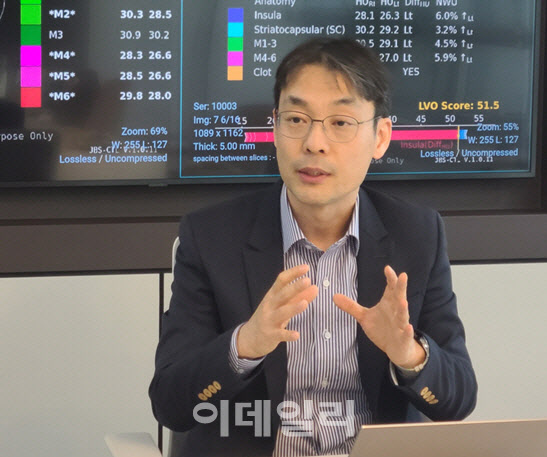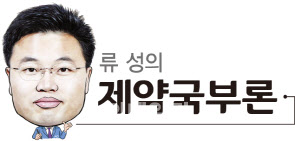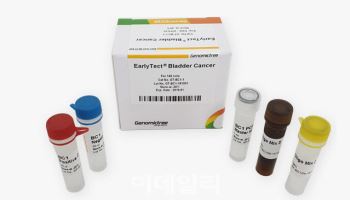Unauthorized reproduction or distribution is illegal and subject to criminal penalties.
Pharm Edaily enforces a zero-tolerance policy and will take strict action.
[By Yoo Sung, Head of Bio-Platform, Edaily] Korea’s biotech industry, or K-Bio, continues to surprise with its swift global expansion. Samsung Biologics leads the world in contract development and manufacturing of biologics (CDMO), while Celltrion has proven itself a biosimilar powerhouse, successfully challenging originator drugs. Alteogen has also made a name for itself with licensing-out of novel drug platforms.
Beyond these well-known players, rising stars in AI-powered medical diagnostics are quietly bolstering K-Bio’s international profile. Companies like Lunit, JLK, and VUNO are spearheading this movement. Armed with cutting-edge AI technologies recognized worldwide, they are gaining ground in advanced markets such as the United States and Japan, fueling K-Bio’s leap forward. With massive market potential, AI healthcare solutions are expected to become a key driver of economies of scale for the sector.
Edaily recently sat down with Dongmin Kim, CEO of JLK, one of the world’s leading players in AI medical diagnostics. Out of its 83 employees, 60 are AI specialists, a testament to JLK’s focus. Notably, Kim holds master’s and doctoral degrees in multiphysics numerical analysis from the University of Tokyo, a rare academic background among Korean biotech CEOs.
JLK has established itself as a global leader by developing AI solutions that cover the entire stroke care cycle from early detection and diagnosis to prognosis management and rehabilitation. The company secured U.S. FDA clearance for six stroke AI diagnostic solutions, proving its technological edge. It also obtained approval from Japan’s PMDA for the same set of products.
“Korea’s strong medical infrastructure, advanced IT environment, and rapid technology adoption give it significant global competitiveness in AI-driven healthcare,” Kim said. “Widespread PACS and EMR systems, coupled with active physician participation in research, have allowed us to build high-quality training datasets.”
Kim stressed that the uniqueness of Korean medical data and the country’s high research standards have empowered JLK to develop globally competitive AI diagnostic solutions, particularly in specialized vertical applications.
 | | Dongmin Kim, CEO of JLK (Photo courtesy of JLK) |
|
JLK currently holds over 10 million MRI scans and more than 10 million CT scans related to stroke data collected over seven years by around 70 neurology specialists at 11 leading hospitals, including Seoul National University Bundang Hospital and Dongguk University Ilsan Hospital. This vast trove of imaging data has enhanced diagnostic accuracy, even for subtle or rare stroke presentations often missed by conventional methods.
“We recently invited about 10 renowned neurologists, including professors from MD Anderson and Harvard Medical School, to assess diagnostic accuracy for challenging stroke cases. Human accuracy hovered around 50%, but our AI solutions scored 70%,” Kim noted.
According to Kim, JLK’s AI diagnostic solutions consistently outperform human accuracy by 10~20%. While objective data on physician misdiagnosis rates are lacking as direct examination of the brain is impossible, AI provides a significant edge.
“In emergency rooms, when our AI detects a stroke, it instantly alerts physicians via smartphone, enabling faster surgical intervention,” Kim explained.
AI-driven alerts have been shown to advance stroke surgeries by about an hour on average, a critical difference, as earlier surgery significantly improves patient recovery. Operating even an hour sooner can increase a stroke patient’s chances of returning to independent living by 1~1.5 times.
“Globally, we compete with U.S. players like Viz.ai and RapidAI. RapidAI, which dominated the Korean market for nearly a decade, recently exited after losing ground to our products. We are confident our technology leads the global market,” Kim said.
Kim also pointed out that while U.S. competitors received FDA clearance using only CT imaging, JLK combined CT with MRI for higher diagnostic accuracy.
“Naturally, analyses based on detailed, high-resolution MRI imaging offer superior accuracy and sensitivity,” he emphasized.
JLK is positioning 2025 as its breakthrough year for monetization. Until last year, the company focused on showcasing its solutions in hospitals. Now it is rolling out paid service models, targeting \10 billion ($7.2 million) in sales and aiming to turn a profit. With over 200 hospitals in Korea already using its solutions, revenue is set to surge.
JLK is also aggressively expanding into the U.S. and Japan. In the U.S., it has built relationships with billing managers at major hospitals to streamline insurance reimbursement processes. The company plans to secure three to four additional FDA clearances this year and is working with large hospital networks, including Adventist Health, to grow its distribution channels.
In Japan, JLK signed a distribution deal with Creaibo, a subsidiary of trading giant Marubeni, securing a formal supply route to medical institutions. It is also in talks with Fortron Medical Imaging and collaborating with the National Cerebral and Cardiovascular Center and Nippon Medical School Hospital to expand supply.
Stroke Market Potential and AI Healthcare OutlookEvery year, Korea sees around 600,000 new stroke cases, while the global figure stands at 15 million. According to Samjong KPMG, Korea’s AI healthcare market valued at \509 billion in 2023 is projected to grow 50% annually, reaching \9.2 trillion by 2030. Globally, the AI healthcare market is expected to expand from \21.3 trillion in 2023 to \245.4 trillion by 2030, growing at a compound annual rate of 41% (MarketsandMarkets).











